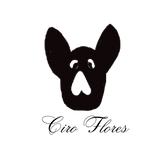Certifications Upholding Ethical Standards in Organic Cotton Products






In today's conscious consumer landscape, the demand for sustainable, ethically sourced products has surged. Within the realm of textile manufacturing, certifications play a pivotal role in establishing trust and transparency. Among these certifications, the Organic Blended Content Standard, Organic 100 Content Standard, and PETA Approved Vegan stamp stand tall as indicators of ethical practices and quality assurance in the realm of organic cotton products.
OEKO-TEX® STANDARD 100
Is a label for textiles tested for harmful substances. It sets the benchmark for textile safety, from yarn to finished product. Every item bearing the STANDARD 100 label is certified as having passed safety tests for the presence of harmful substances.
- The certified article is harmless to human health
- Every thread, button and accessory have been tested against a list of over 1,000 harmful substances
- The more intensive the skin contact, the stricter the human ecology requirementsand laboratory tests
- We use globally standardised test criteria
- The certification complies with international requirements and regulations
- We review our limit values for harmful substances at least once a year
Organic Blended Content Standard
The Organic Blended Content Standard (OBCS) is a comprehensive certification that ensures the authenticity and integrity of textiles made from a blend of organic and non-organic materials. For organic cotton products, this certification serves as a guarantee that the organic fibers used in the fabric meet stringent criteria, even if they're combined with other materials in the final product. This standard assures consumers that a significant portion of the product comes from organic sources, promoting transparency in the supply chain and supporting sustainable practices.
Organic 100 Content Standard
The Organic 100 Content Standard is a pinnacle in the realm of organic textiles. It signifies that the product contains 100% certified organic materials, affirming that every fiber used in the creation of the textile is organically sourced. For organic cotton products, this certification assures customers that no synthetic or non-organic materials are incorporated, emphasizing purity and adherence to organic standards. This stringent standard not only supports environmentally friendly practices but also upholds the health and well-being of consumers.
PETA Approved Vegan
The PETA Approved Vegan certification holds a unique position, particularly relevant in today's conscientious market. While not specific to organic materials, it assures consumers that the product does not involve any animal-derived components or testing. In the context of organic cotton products, this certification complements the ethical narrative by confirming that no animal by-products or processes are utilized in the creation of the fabric or the final product. It resonates with a growing consumer base seeking cruelty-free and environmentally conscious options.
These certifications collectively embody a commitment to sustainability, ethical practices, and consumer welfare in the production of organic cotton products. They serve as pillars of assurance for consumers who prioritize transparency, environmental stewardship, and ethical manufacturing processes.
In conclusion, the presence of the Organic Blended Content Standard, Organic 100 Content Standard, and PETA Approved Vegan certifications on organic cotton products reflects a dedication to upholding rigorous ethical and quality standards. As consumer awareness continues to grow, these certifications serve as beacons guiding individuals towards consciously sourced, sustainable, and cruelty-free choices.
FAIR WEAR
"Together, we’re making clothing fair for everyone."
At Fair Wear, we’re pushing for a world where the global garment supply chain is a source of safe, dignified and decently paid employment, and in which human rights are respected.
Global Recycle Standard (GRS)
The RCS and GRS are designed to boost the use of recycled materials
The Recycled Claim Standard (RCS) and Global Recycled Standard (GRS) set the criteria for the third-party certification of recycled materials and chain of custody. The GRS includes a higher (50%) minimum recycled content percentage and additional social and environmental requirements related to processing and chemical use.

